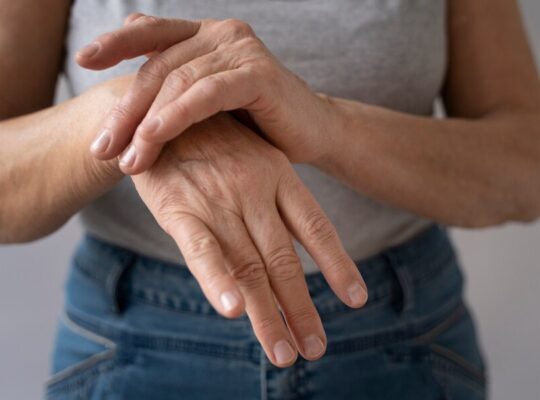Gastritis is a pathological state that is widespread worldwide and affects millions of people. It happens when the mucosa of the stomach is irritated or infected and causes pain and bloating in addition to other symptoms. Learning the cause, signs, and therapy for gastritis is crucial to decreasing the impact of the disease.
What is Gastritis?
Causes of Gastritis
Several causes lead to gastritis. The following are some of the most common causes:
- Infections: One of the major roots behind it is the presence of the Helicobacter pylori (H. pylori) bacterium. This bacterium can lead to long-term ulceration of the protective stomach lining, causing inflammation. When diagnosed with gastritis, one can easily develop other digestion complications or disorders due to poor stomach health if not treated earlier. In some cases, this can contribute to the development of conditions like Pyogenic Liver Abscess.
- Frequent Use of NSAIDs: NSAIDs such as ibuprofen and aspirin if taken frequently can cause inflammation to the stomach lining, thus leading to Gastritis. This irritation can also hurt individuals with other diseases like CKD because they may work with analgesics.
- Excessive Alcohol Consumption: Ethanol however causes inflammation of the stomach lining through irritation and degradation of its lining. It may also get worse if one persists in taking alcohol in large proportions.
- Stress: Peculiarly, stress – whether physical or emotional – has been found to trigger symptoms. Stress should be managed as it works well for gastritis among other diseases that affect the body. Techniques such as Breathing In or Out exercises may help manage stress levels.
- Autoimmune Disorders: The stomach lining of a person is attacked by his or her immune system. This type of gastritis is linked with other autoimmune disorders much of the time.
Symptoms of Gastritis
It manifests itself in many ways and therefore, some common symptoms include:
- Abdominal Pain: Upper abdominal pain may range from acute or severe to mild and aching.
- Nausea and Vomiting: It may cause a sensation of nausea as well as vomiting.
- Bloating and Gas: Most who suffer from it complain of bloating particularly after taking a meal.
- Loss of Appetite: Gastritis symptoms can discourage an individual’s appetite, leading to discomfort when eating.
- Indigestion: Two principal signs are the feeling of burning in the upper part of the stomach and heartburn. Vitamins for Digestion can sometimes be beneficial in managing related issues.
But if these symptoms persist, it is advisable to consult a doctor. It may produce other problems based on the digestion process for some people. For example, vitamins that are mined by the body for digestion might be impacted and this could cause other related health issues.
Types of Gastritis
It has numerous classifications, each with its origins and management plans.
- Acute Gastritis: This type is characterized by irritation in the stomach lining and is commonly acute. While the condition can occur in isolation, it’s often set off by stimuli such as alcohol and spicy foods.
- Chronic Gastritis: It is a gradual process that may last for years and becomes chronic if not treated. H. pylori is common among individuals suffering from chronic gastritis.
- Autoimmune Gastritis: This form is severe as it is an autoimmune form of the disease which attacks the stomach tissue. Autoimmune conditions like Kaposi Sarcoma are sometimes associated with it.
- Atrophic Gastritis: Developed from a long-standing infection or autoimmune response, atrophic gastritis can lead to the thinning of the stomach lining and gastric cancer.
- Chemical Gastritis: Medications are considered causes of chemical gastritis due to bile reflux.
Diagnosis of Gastritis
The initial assessment for diagnosis involves consulting the patient and a physical examination. They may recommend specific tests for a conclusive diagnosis:
- Endoscopy: A small camera is inserted through the mouth to examine the stomach lining. Endoscopy is one of the most efficient methods for diagnosing inflammations.
- Blood Tests: Blood tests might reveal infections or anemia, which are common in individuals suffering from chronic gastritis.
- Stool Test: A stool sample can check for blood, indicating gastrointestinal bleeding.
- H. pylori Test: These tests include non-invasive breath, blood, or stool tests for H. pylori, bacteria associated with many cases of gastritis.
What to Do with Gastritis
There are medications and lifestyle changes an individual should consider. Here are some effective methods:
- Medications
- Antacids: Non-prescription antacids neutralize stomach acid, helping relieve heartburn and indigestion.
- Proton Pump Inhibitors (PPIs): PPIs reduce acid production, managing inflammation.
- H2 Blockers: Unlike antacids, H2 blockers reduce the amount of stomach acid.
- Antibiotics: For H. pylori infections, antibiotics can eradicate the bacteria, reducing symptoms.
- Lifestyle Changes
- Diet Adjustments: To reduce symptoms associated with gastritis, one should avoid spicy, acidic, or fried foods. Consider a Cholesterol Lowering Diet to support overall digestive health.
- Stress Management: Techniques like Time Management, deep breathing, or meditation can alleviate stress-related gastritis relapses.
- Reducing Alcohol Intake: Limiting alcohol will help prevent the worsening of stomach-related conditions.
- Quitting Smoking: Tobacco worsens it and can cause ulcers, making smoking cessation essential.
Prevention
While it may not be possible to prevent all cases but several steps can reduce the risk:
- Practice Good Hygiene: Hand washing can help prevent H. pylori infection.
- Limit NSAID Use: Use NSAIDs sparingly and follow dosage instructions.
- Eat a Balanced Diet: A healthy diet includes vitamin-packed foods, which are beneficial for stomach health, similar to a Home Remedies for Gallstones approach.
- Manage Stress: Managing stress prevents gastritis flares. Techniques like Breathing In or Out help manage stress levels.
Complications
If left untreated, it can lead to serious complications, including:
- Ulcers: Chronic inflammation can erode the stomach lining, leading to ulcers.
- Bleeding: It can cause gastrointestinal bleeding, sometimes seen in stool or vomit.
Increased Cancer Risk: Prolonged gastritis can elevate the risk of stomach carcinoma, especially in cases of atrophic or autoimmune gastritis.
FAQs
What is gastritis?
It is an inflammation of the stomach lining that results to infections, excessive use of NSAIDs or stress.
Does gastritis have the potential to clear up without treatment?
Minor symptoms of can be alleviated through adjustments to diet and sustaining lifestyles, however, chronic gastritis have to be treated by doctors.
What should not be eaten when having gastritis?
Foods with spices, or those which are acidic or fried, should not be taken.
How is gastritis diagnosed?
This can be diagnosed by observation of the symptoms, complete blood count, stool examination, endoscopy.
In its more complicated form, can gastritis cause other diseases?
Well, it may cause ulcers, stomach bleeding and vice increases the risk of stomach cancer.
Is stress a cause of gastritis or is the condition just a product of stress?
In chronic cases, stress worsens the symptoms that a person has to endure.
In what manner does H. pylori interact with gastritis?
pylori are bacteria that affect the stomach lining giving rise to gastritis through the inflammation of the affected tissue.
Is there natural treatment for gastric ulcers?
Indeed, there are natural ways of dealing with gastritis symptoms by changing our diet and managing stress.
Can gastritis be cured?
Case management is possible, and symptoms can be relieved with the help of medicines, but some types of gastritis are chronic, and they might require constant care.
Is gastritis common?
Of course, this condition is widespread around the globe, the patient can be an adult or a child because of certain cause are connected with the way of life and bacteria.












